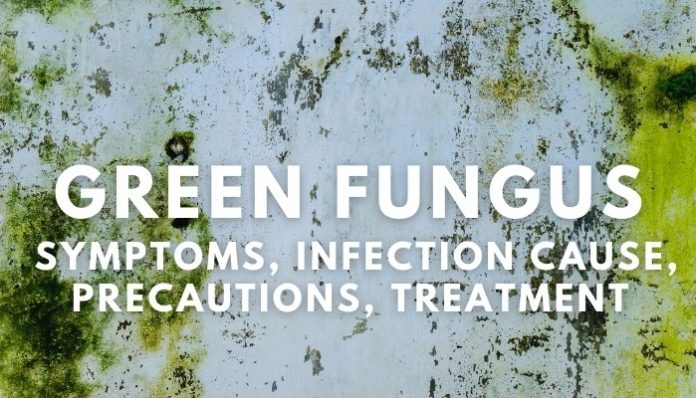A 34-year-old businessman was brought from Indore to Mumbai in a special air ambulance, after being diagnosed with green fungus in his sinus, lungs, and blood. He had recovered from a month-long Covid-19 infection.
Mumbai doctors said his wasn’t the first case of green fungus (Aspergillus infection) in a Covid-19 patient. They are seeing a significant rise in such cases along with other fungal infections such as the widely reported Mucormycosis or black fungus.
Mid-day.com reached out to Dr Arpit Sharma of P. D Hinduja Hospital to get answers to some of the most pressing questions related to Aspergillus infection.
What is green fungus?
Aspergillus fungus is also known as Green fungus as they appear green in laboratory cultures. Aspergillosis is the infection caused by Aspergillus, the common mould that lives indoors and outdoors, says Dr Arpit Sharma of P. D Hinduja Hospital, where the Indore patient is being treated in the ICU.
However, AIIMS director Dr. Randeep Guleria recently opined that Mucormycosis should be identified by its name and not colour to avoid confusion.
“Labelling the same fungus with names of different colours can create confusion. Mucormycosis is not a communicable disease, unlike Covid-19. About 90-95 per cent of patients getting infected with Mucormycosis are found to have been either diabetic and/or taking steroids. This infection is seen very rarely in those who are neither diabetic nor taking steroids,” he had said.
Is it different from black fungus?
Since it appears as green colonies when grown in culture mediums in laboratory, it is called green fungus, Dr Sharma says.
Dr Anita Mutha, HoD microbiology department, Mahatma Gandhi Mission (MGM), said, “Funguses show colour in their cultures. There are black, yellow, green and white funguses, but these are all specimens of Mucormycosis, Cinderella and Aspergillus.”
How deadly is green fungus?
Like black fungus,it too can cause severe and life threatening infections involving the nose, sinuses, eyes, brain and lungs, Dr Sharma adds.
What are the causes and symptoms?
Dr Sharma says, inhalation of fungal spores (usually present commonly in our environment) in immunosuppressed (low-immunity) individuals can result in fungal infections (either Mucormycosis or Aspergillosis). Usually nasal and sinus involvement presents in the form of nasal congestion, blockage, and headache, nasal discharge, swelling of eyes, or vision loss.
Who are vulnerable to green fungus?
Immunosuppressed individuals like diabetics, cancer chemotherapy patients, or immunodeficiency patients are the vulnerable population, says Dr Sharma. Recent history of Covid-19 infection also results in low immunity and predisposes a patient to such fungal infections.
What is the rate of growth of infection?
It grows quite rapidly and can involve nasal sinuses, eyes and brain within few days if left untreated. It may result in death also if not addressed early.
What treatment is available?
Usually, either endoscopic surgery or open surgery followed by anti-fungal medications (amphotericin B) over a period of few weeks.
What is the recovery rate?
It depends on a lot of factors. If the infection is diagnosed early and appropriate treatment in the form of surgery and antifungal medications starts on time, along with strict control of blood sugars, then there are good chances of recovery. Around 60- 70 per cent patients do well and recover completely.
How can it be prevented?
The fungus can be prevented by maintaining good hygiene and cleanliness and wearing N-95 respirators, especially in dusty areas. Immunosuppressed (low-immunity) people should avoid activities involving close contact with soil and dust. Diabetic patients should try and regulate sugar levels, especially if they had received steroids recently.

























